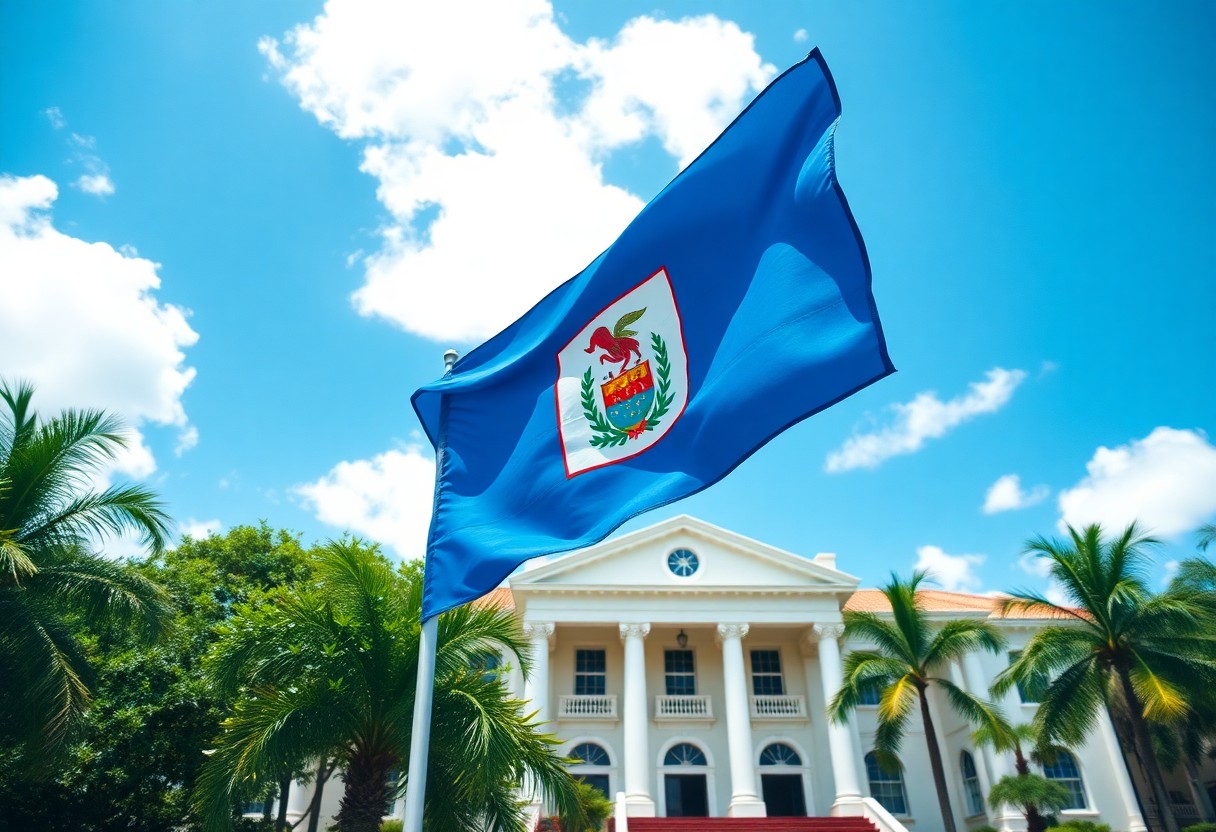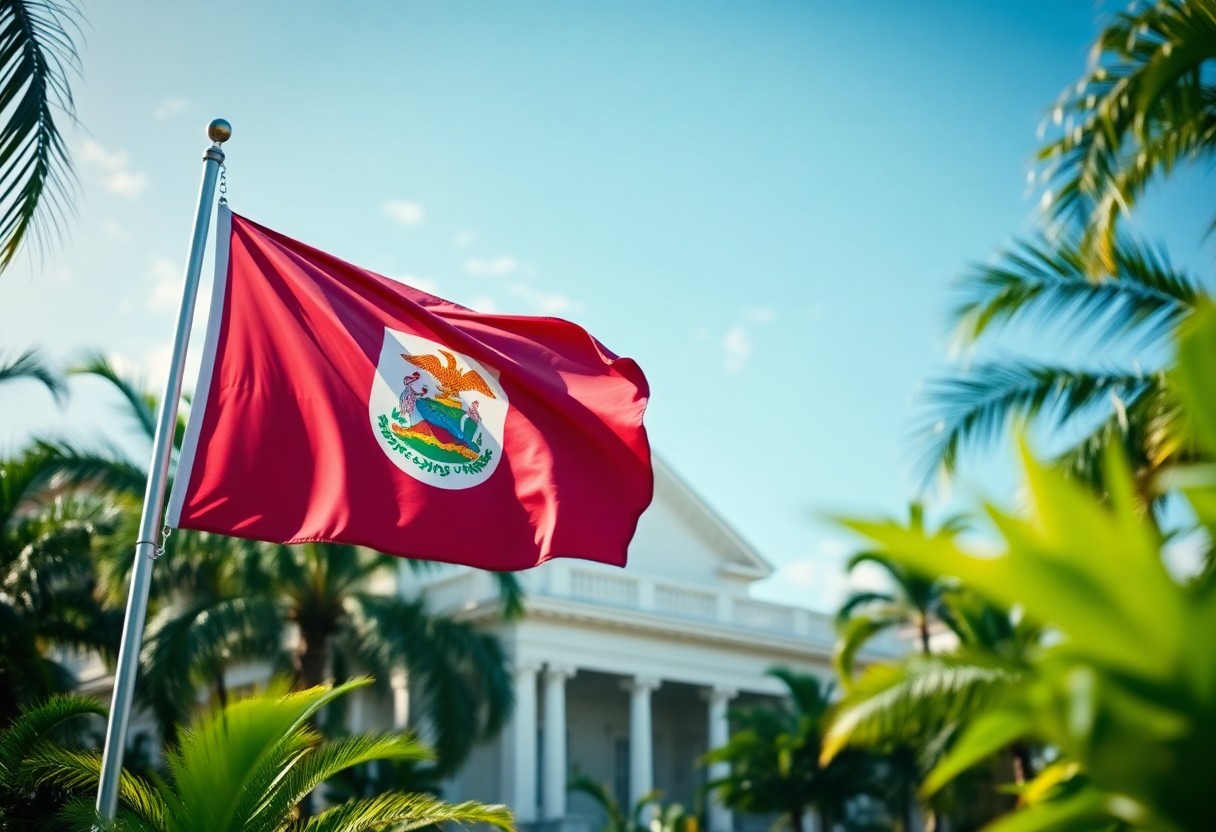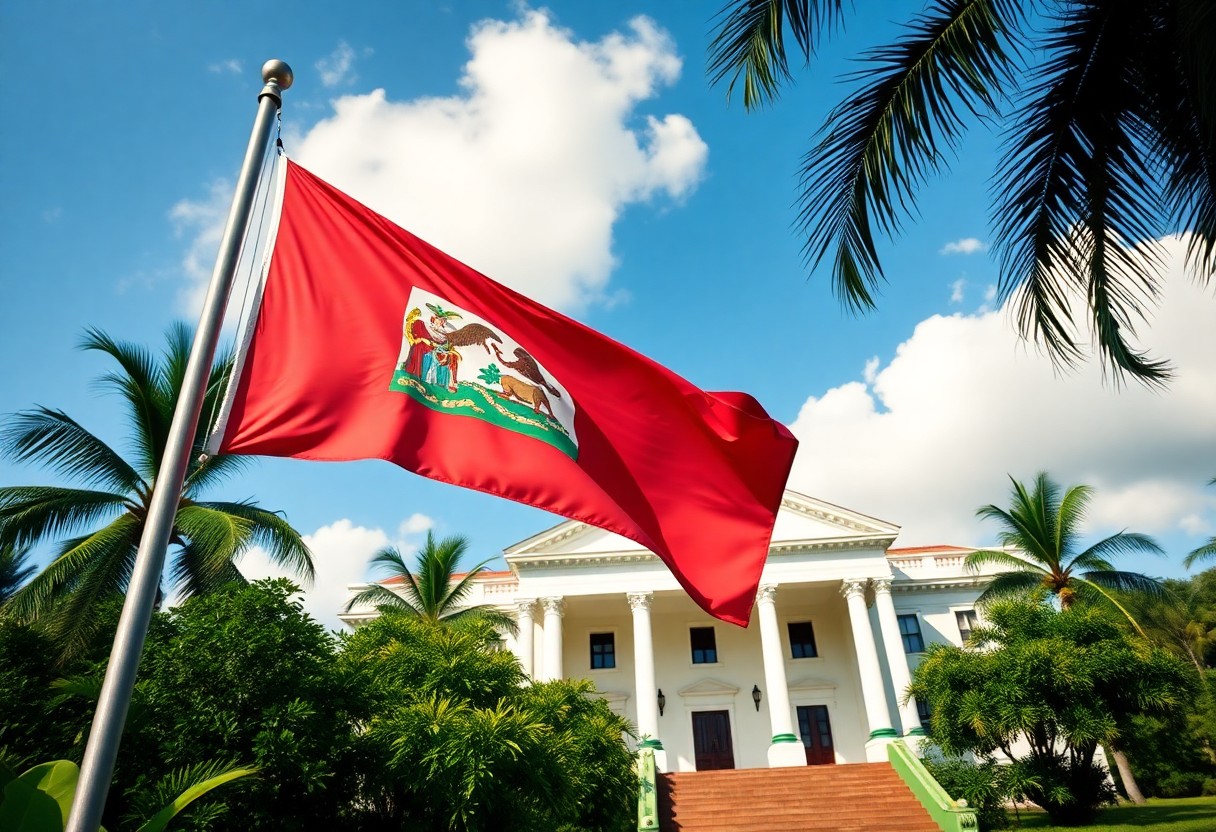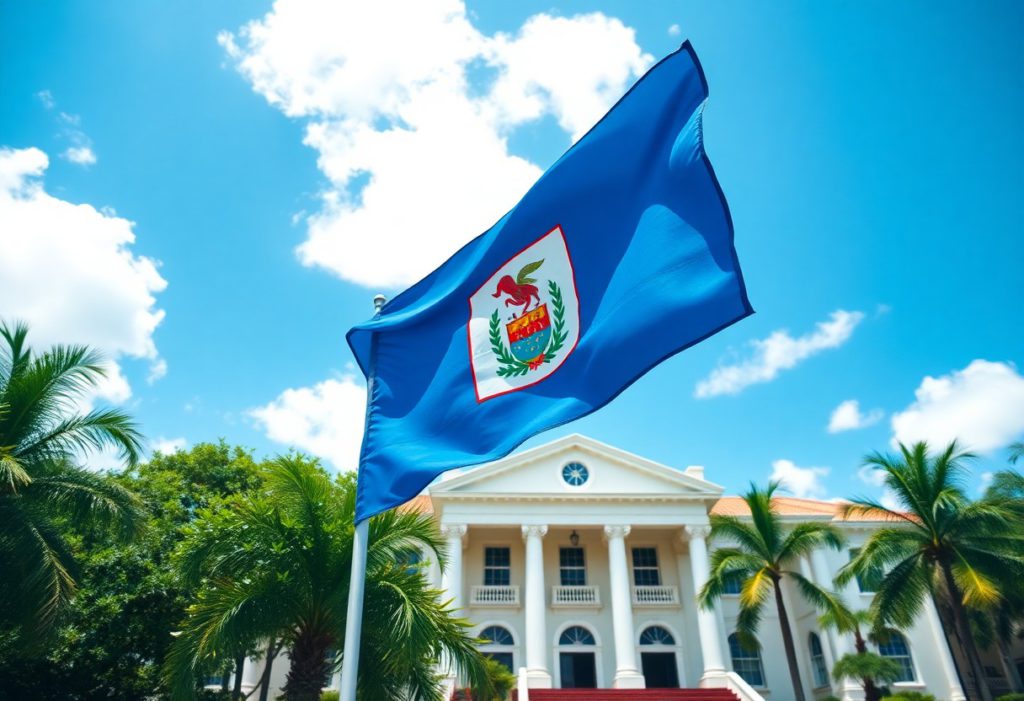Comprehending Belize's Journey to Independence is vital for understanding the essence of Belizean identity and its historical narrative. This article will thoroughly explore the crucial historical milestones that shaped the nation's quest for independence. It will detail the persistent struggles against colonial dominance, the essential treaties signed during this tumultuous period, and the monumental achievement of self-governance that occurred in 1981. These significant historical events not only highlight the tenacity and resolve of the Belizean population but also reveal the transformative shifts that laid the groundwork for a democratic Belize. Join us as we delve into the pivotal milestones that continue to define Belize's national identity today.

Delving into the Vibrant Pre-Colonial Era of Belize
Prior to European contact, the pre-colonial era in Belize was marked by a rich tapestry of diverse indigenous cultures and extensive histories. Numerous indigenous groups thrived in this region, with the Maya civilization being the most significant among them. These societies established sophisticated social structures, innovative agricultural practices, and extensive trade networks that were remarkable for their time. The cultural legacy from this period served as a fundamental cornerstone for Belize’s identity, profoundly influencing the historical trajectory and developments that followed in the region. Understanding this era helps contextualize the complexities of Belize’s modern identity.
Highlighting the Remarkable Achievements of Maya Civilisations
Any thorough exploration of pre-colonial Belize must prominently acknowledge the extraordinary accomplishments of the Maya civilisations. These ancient societies not only flourished but also achieved remarkable advancements in fields such as architecture, astronomy, and agriculture. Visitors and locals alike can explore the breathtaking ruins of Caracol and Lamanai, which stand as lasting testaments to the Maya's sophisticated way of life, revealing their profound understanding of urban planning and the natural sciences. This exploration of Maya achievements enriches our appreciation of Belize’s historical depth and cultural significance.
Appreciating Belize’s Multifaceted Cultural Heritage
At the heart of Belize’s identity lies a rich and intricate cultural heritage. This vibrant tapestry is woven from the complex interactions between indigenous, African, and European influences that have shaped modern Belizean society. The diversity of this cultural heritage is vividly reflected in the multitude of languages, traditions, and customs that enrich daily life in Belize, contributing to a distinctive cultural landscape cherished by its people. The celebration of this cultural diversity fosters unity and pride among Belizeans, highlighting the beauty of their shared history.
Moreover, cultural heritage plays a pivotal role in shaping Belize’s cultural identity. The architectural marvels of the Maya, alongside their agricultural innovations, continue to resonate within contemporary society. Additionally, the contributions from African and Creole communities have significantly enriched Belize’s artistic expressions, musical traditions, and culinary arts. This fascinating blend of cultures not only fosters a strong sense of belonging but also serves as a poignant reminder of the historical challenges faced by these diverse groups throughout Belize's history.
Examining the Era of British Honduras: A Significant Historical Chapter
The period when Belize was referred to as British Honduras marks an essential chapter in its history, characterised by British colonial rule. Spanning from the 18th century well into the mid-20th century, this era witnessed the evolution of a distinct cultural identity deeply influenced by British governance, economic ambitions, and local resistance movements. It was during this time that critical changes emerged within political and administrative frameworks, ultimately establishing the groundwork for Belize’s unwavering pursuit of independence.
A Comprehensive Timeline of British Rule in Belize
After being officially designated a British colony in 1862, British Honduras underwent significant developments, including the implementation of the British legal system and the establishment of essential infrastructure. Over the years, the colony experienced substantial resistance from the local populace, particularly evident during the 1934 labour riots, which played a crucial role in galvanizing support for self-governance among the Belizean people. These events contributed to the growing political consciousness that would eventually lead to independence.
The Enduring Influence of British Colonial Rule on Belizean Society
The enduring impact of British colonial rule has profoundly shaped Belizean society and governance structures. The introduction of the English language, along with legal frameworks and educational systems, was instrumental in modernising the nation. While this colonial relationship posed certain challenges, it also laid vital foundations for the democratic governance that Belize enjoys today. Recognising these dynamics is essential for understanding the nuances of Belize’s historical context and its journey towards self-determination.
Furthermore, the influence of British colonial rule is evident in numerous aspects of contemporary Belizean society. The English language remains the official language, facilitating communication both locally and internationally. In addition, the legal and governance frameworks established during colonial times paved the way for Belize's current legal system. However, it is crucial to acknowledge that this influence came with the exploitation of resources and cultural imposition, which continue to affect Belizean demographics and national identity. Understanding these multifaceted dynamics is imperative for grasping Belize’s intricate journey toward independence.

Charting the Pivotal Course to Independence for Belize
Any discussion regarding Belize’s journey towards independence must recognise the significant events that paved the way for this historic transition. The path to freedom involved responding to colonial pressures, nurturing a burgeoning sense of nationalism, and advocating for greater self-determination among the Belizean populace. The mid-20th century witnessed a surge in political activism that tirelessly laid the foundation for Belize’s ultimate liberation from British colonial rule, marking a transformative era in the nation’s history.
Identifying Key Historical Figures in Belize’s Independence Movement
Prominent historical milestones along Belize’s path to independence prominently featured influential leaders such as George Cadle Price. By recognising their leadership and vision, one can appreciate how these figures mobilised public support for self-governance, significantly shaping the future and identity of the nation. Their contributions were crucial in fostering a sense of unity and purpose among Belizeans, ultimately driving the quest for independence.
Engaging in Crucial Negotiations for Self-Governance
During the critical discussions surrounding self-governance, representatives of the Belizean people took centre stage, proposing transformative strategies that would alter the course of history. With a proactive and determined approach, Belizean leaders engaged in negotiations with British representatives regarding self-governance. These negotiations proved to be a pivotal turning point, as Belize sought to assert its autonomy in managing its own affairs. The formation of political parties and organised movements played an essential role in articulating the demands for change from the Belizean populace. As tensions heightened, the negotiations became increasingly intense, reflecting the urgency felt by Belizeans for autonomy. This critical period culminated in various constitutional amendments that set the stage for Belize’s eventual independence from colonial oversight.
Recognising Significant Milestones on the Journey to Independence
A multitude of significant milestones marked Belize’s arduous journey to independence. From early legislative initiatives to pivotal events, each moment played a crucial role in the quest for self-determination. As one examines these milestones, the profound impact they had on the nation’s identity and the ongoing struggle for sovereignty becomes abundantly clear.
Key Legislative Developments Paving the Way to Self-Governance
One of the key early legislative developments was the introduction of the Internal Security Act in 1961. This act established a framework for self-governance, allowing for a limited degree of autonomy in local governance matters. This crucial legislation represented a watershed moment, encouraging Belizeans to actively engage in political processes and advocate for further reforms that would solidify their path toward independence.
Significant Events from 1964 to 1981 that Shaped Belize’s Political Landscape
In the years leading up to Belize’s independence, significant events from 1964 to 1981 played a crucial role in shaping the nation’s political landscape. These pivotal moments included the emergence of influential political leaders and nationalist movements, which laid the groundwork for achieving self-governance. This transformative period witnessed a series of key events that contributed to Belize’s independence.
The 1964 Elections ushered in a new era of political engagement by expanding voting rights to a broader segment of the Belizean population. The 1969 Belize-Guatemala tension intensified calls for autonomy and unity among citizens, highlighting the importance of national identity. The 1973 Constitution established a more robust governance framework, granting additional rights and liberties to the populace. Ultimately, these developments, coupled with the declaration of independence in 1981, defined Belize’s trajectory toward establishing a national identity and self-rule.

Assessing Challenges and Developments in Post-Independence Belize
In the years following its independence in 1981, Belize faced a series of challenges and opportunities in its quest to shape a cohesive national identity and effective governance. The nation undertook significant efforts to establish a stable political framework while promoting economic growth and addressing pressing social issues. Initiatives were directed toward enhancing infrastructure, education, and healthcare systems, all aimed at improving the quality of life for every Belizean in this young and evolving democracy.
Understanding the Political Framework Governing Belize
The political structure is fundamental in determining the governance of Belize. The country operates as a parliamentary democracy with a distinct separation of powers among the executive, legislative, and judicial branches. The Prime Minister leads the government, while the legislative body comprises the House of Representatives and the Senate. This political system encourages regular elections and representation of diverse political views, fostering active civic engagement among the populace. Understanding this framework is essential for comprehending how Belizean governance operates.
The Strategic Importance of Commonwealth Membership for Belize
Upon gaining independence, Belize became a member of the Commonwealth of Nations, which has been instrumental in fostering international relationships and support. This membership provides Belize with access to a network of countries that share similar democratic values, enabling participation in collaborative initiatives across various sectors such as education and trade. Engaging with the Commonwealth enhances Belize’s global stature while fortifying connections with other former British colonies.
A significant advantage of Belize’s Commonwealth membership is the opportunity to engage in dialogues regarding regional issues that impact the nation. Participation in this organisation enhances Belize’s international presence, reinforcing its commitment to democratic principles and human rights. Additionally, Commonwealth nations often provide developmental assistance, which can be crucial in addressing local challenges. However, this membership also entails a responsibility to uphold democratic ideals, ensuring that Belize continues to evolve as a respected member of the global community.
Confronting the Contemporary Challenges Facing Belize
It is crucial to recognise that Belize faces a multitude of contemporary challenges that significantly impact its stability and growth. These challenges encompass economic issues, social considerations, governance, and environmental factors that collectively shape the nation’s future trajectory. Addressing these pressing issues is vital for sustaining progress, as they directly affect the daily lives of Belizeans and the overall development of the country. Promoting awareness and strategic planning is essential to navigate these complexities.
Investigating Economic Challenges in Modern Belize
Modern economic challenges in Belize include high unemployment rates and an over-reliance on tourism as a primary economic driver. These factors contribute to economic instability and directly influence the livelihoods of local businesses. Fluctuations in global tourism trends can have profound effects on Belize’s economy, placing additional pressure on governmental resources and public services. Addressing these economic vulnerabilities is crucial for fostering a more resilient and diversified economic landscape.
Tackling Social Issues within Belizean Society
In Belize, social challenges such as poverty and inequality remain significant concerns. Factors like limited access to education and healthcare services contribute to disparities among various communities, adversely affecting the overall quality of life for Belizeans. Moreover, it is essential to recognise that social challenges in Belize are intricately linked to prevailing economic conditions. High rates of poverty directly impact access to essential services, and inequalities in education can hinder future opportunities for many individuals. Nevertheless, community initiatives and government programs are proactively addressing these concerns, fostering a sense of hope and resilience among the population. By strengthening social ties and investing in education and healthcare, Belize can move closer to achieving a more equitable society for all its residents.
Reflecting Upon Belize’s Path to Independence
Reflecting on Belize’s journey to independence allows one to appreciate the significance of key historical milestones that shaped the nation. The ramifications of the 1964 and 1973 constitutional changes laid the groundwork for self-governance. The importance of the 1975 Treaty of Friendship with Guatemala in addressing long-standing territorial disputes is also noteworthy. Ultimately, the official independence achieved on September 21, 1981, marked a transformative chapter in Belize’s history, allowing every Belizean to celebrate their national identity and sovereignty. Each of these milestones played a crucial role in shaping Belize into the nation it is today.
Frequently Asked Questions about Belize’s Independence Journey
What Key Historical Events Were Pivotal in Belize Gaining Independence?
Belize's journey to independence was characterised by a series of significant events. The movement for independence gained momentum in the 1940s, culminating in 1981 when Belize officially became free from British colonial rule. Critical milestones during this period included the establishment of a constitutional government in 1964 and the orchestration of self-governing elections, which laid the groundwork for future autonomy.
Who Were the Influential Leaders Involved in Belize’s Independence Movement?
A number of crucial figures played pivotal roles in the independence movement. George Price, the leader of the People’s United Party, was central to advocating for Belize's independence. Other notable individuals included Philip Goldson and various members of political organisations that actively campaigned for self-determination, contributing to the collective effort for national sovereignty.
How Did the British Government Respond to Belize’s Quest for Independence?
The British government initially exhibited resistance to independence but eventually recognised Belize’s readiness for self-rule. This shift occurred as they observed the growing political awareness and activism among Belizeans. British officials collaborated with local leaders to facilitate a smooth transition toward independence, ultimately paving the way for Belize to establish its own governance.
The Article How Belize Gained Independence: Key Historical Milestones appeared first on Belize Travel Guide
The Article Belize Independence: Key Historical Milestones Explained Was Found On https://limitsofstrategy.com


